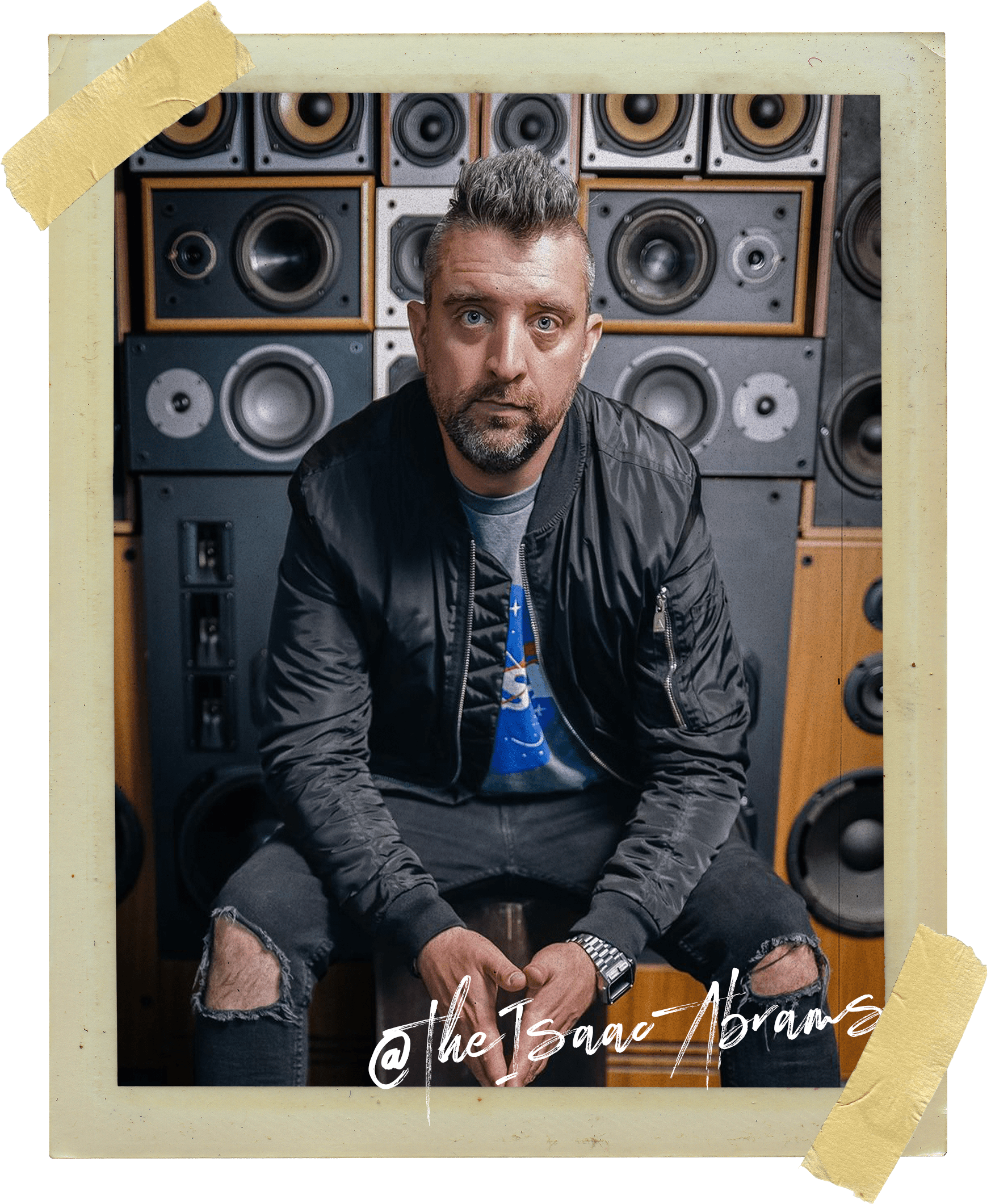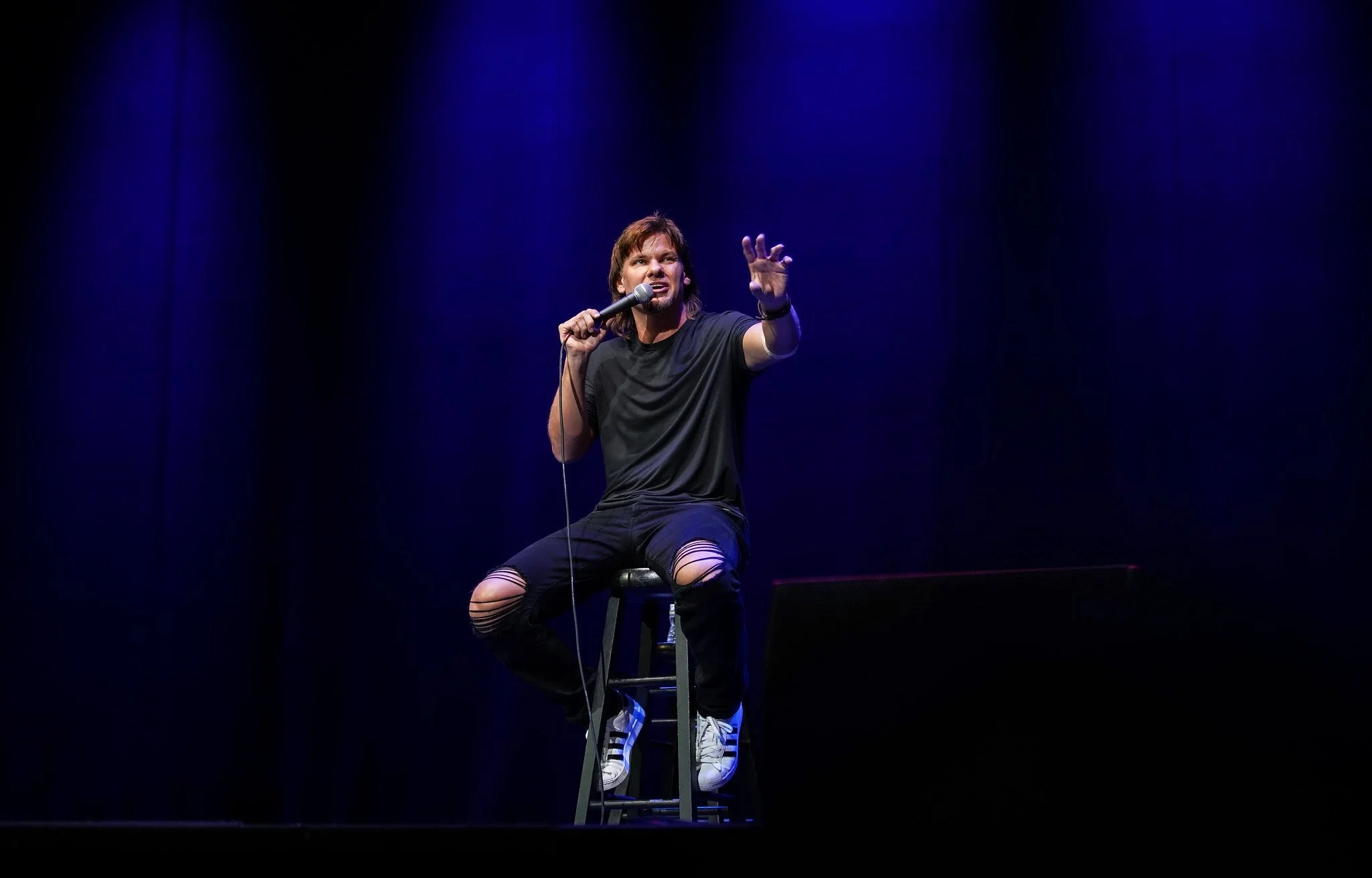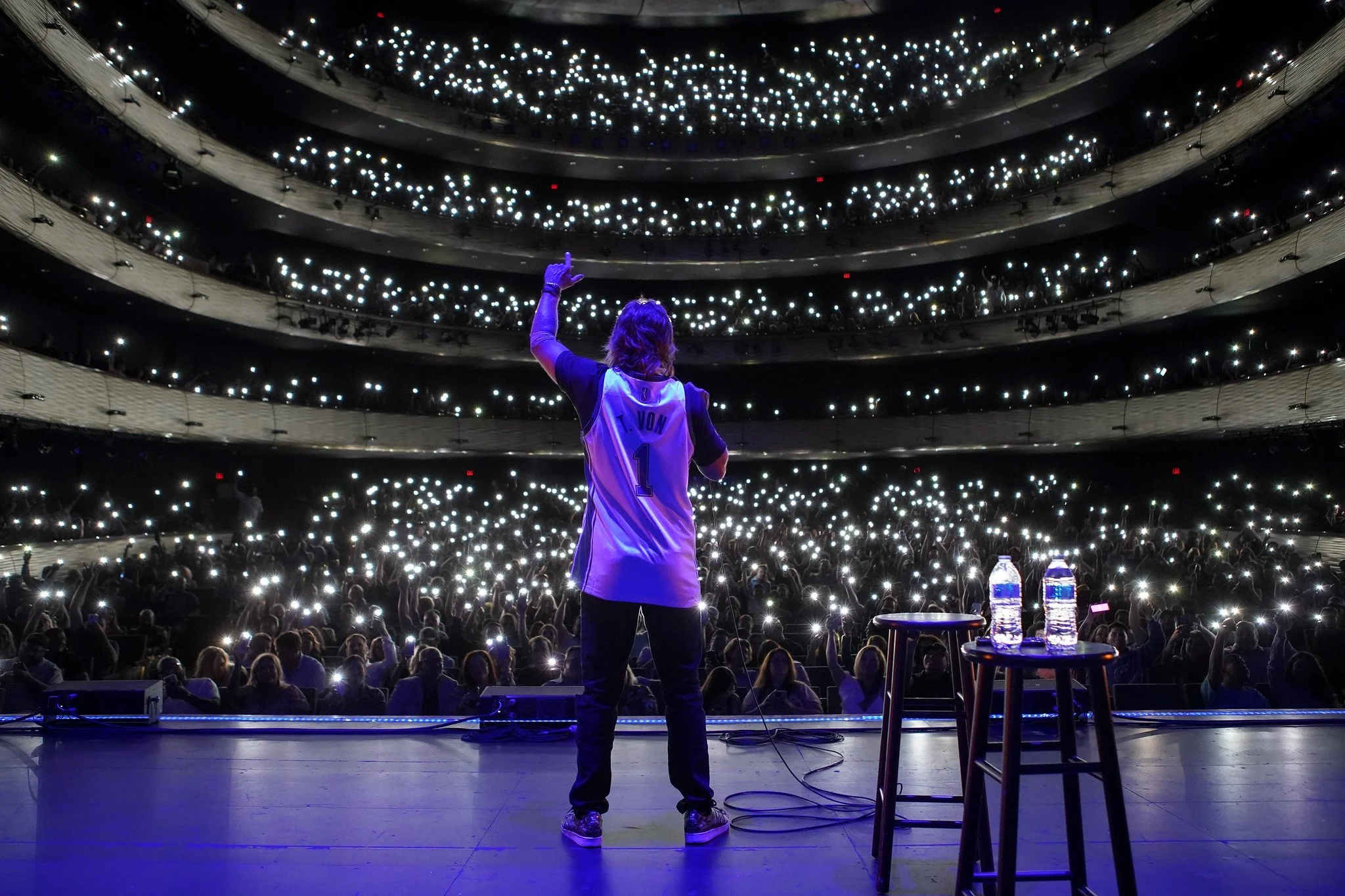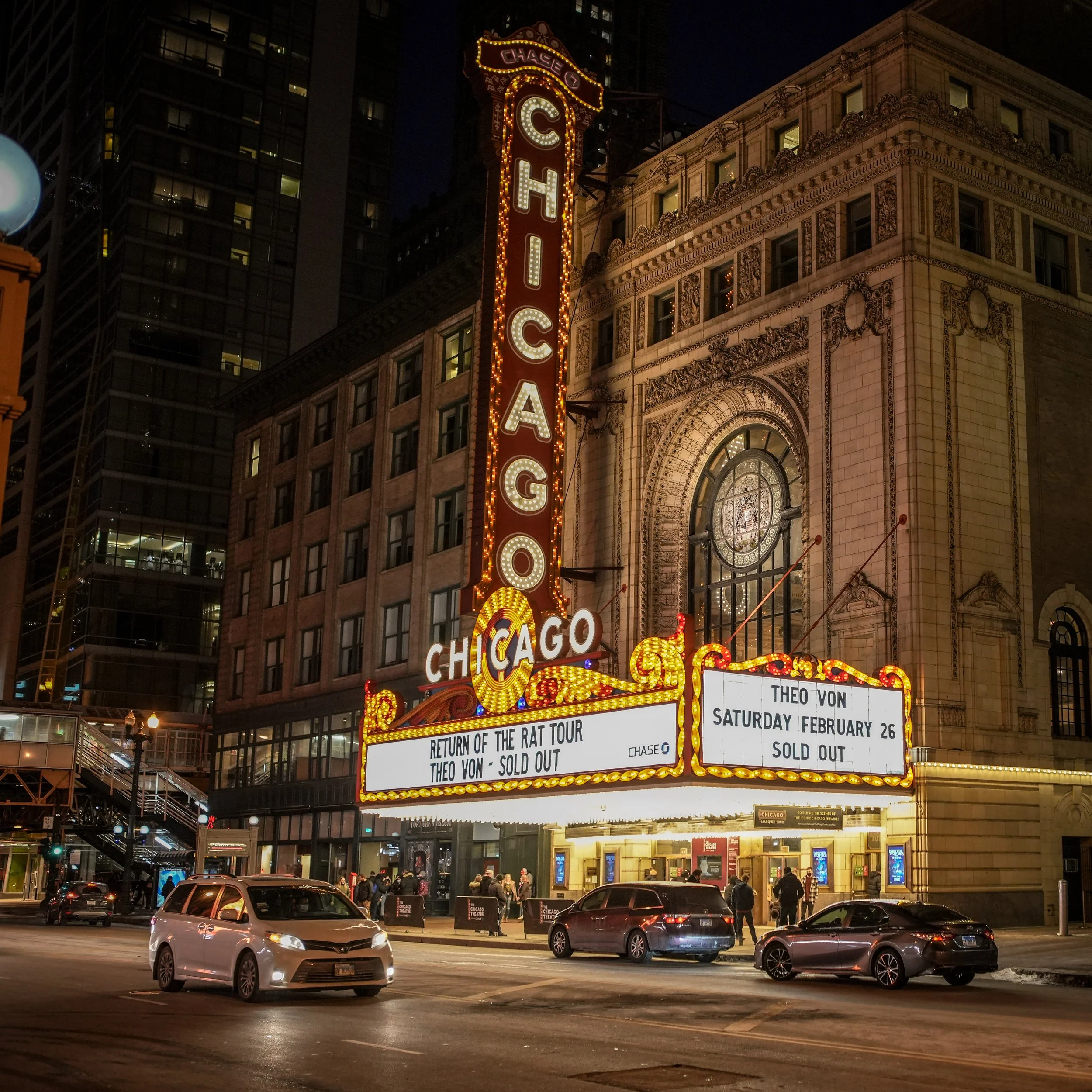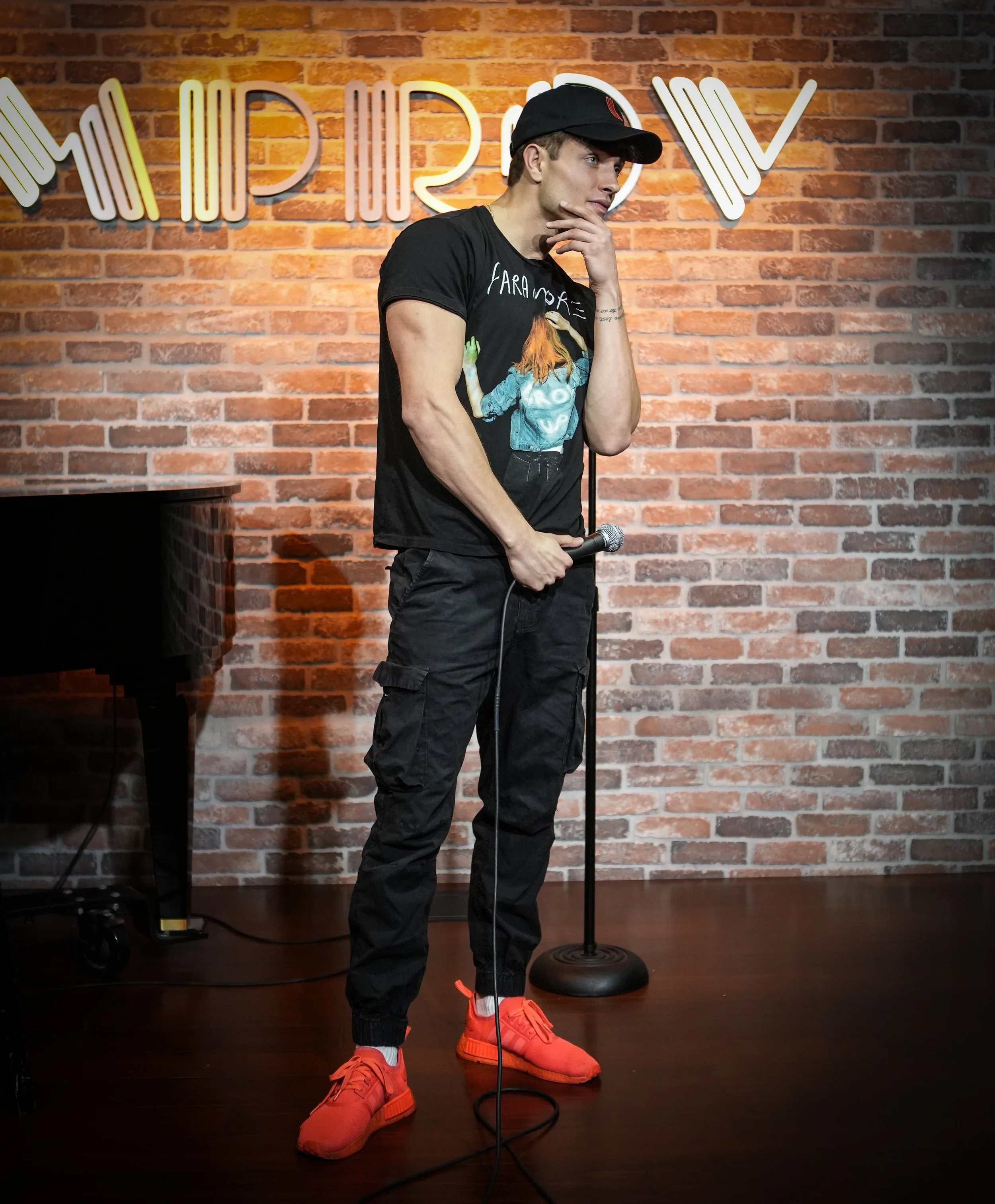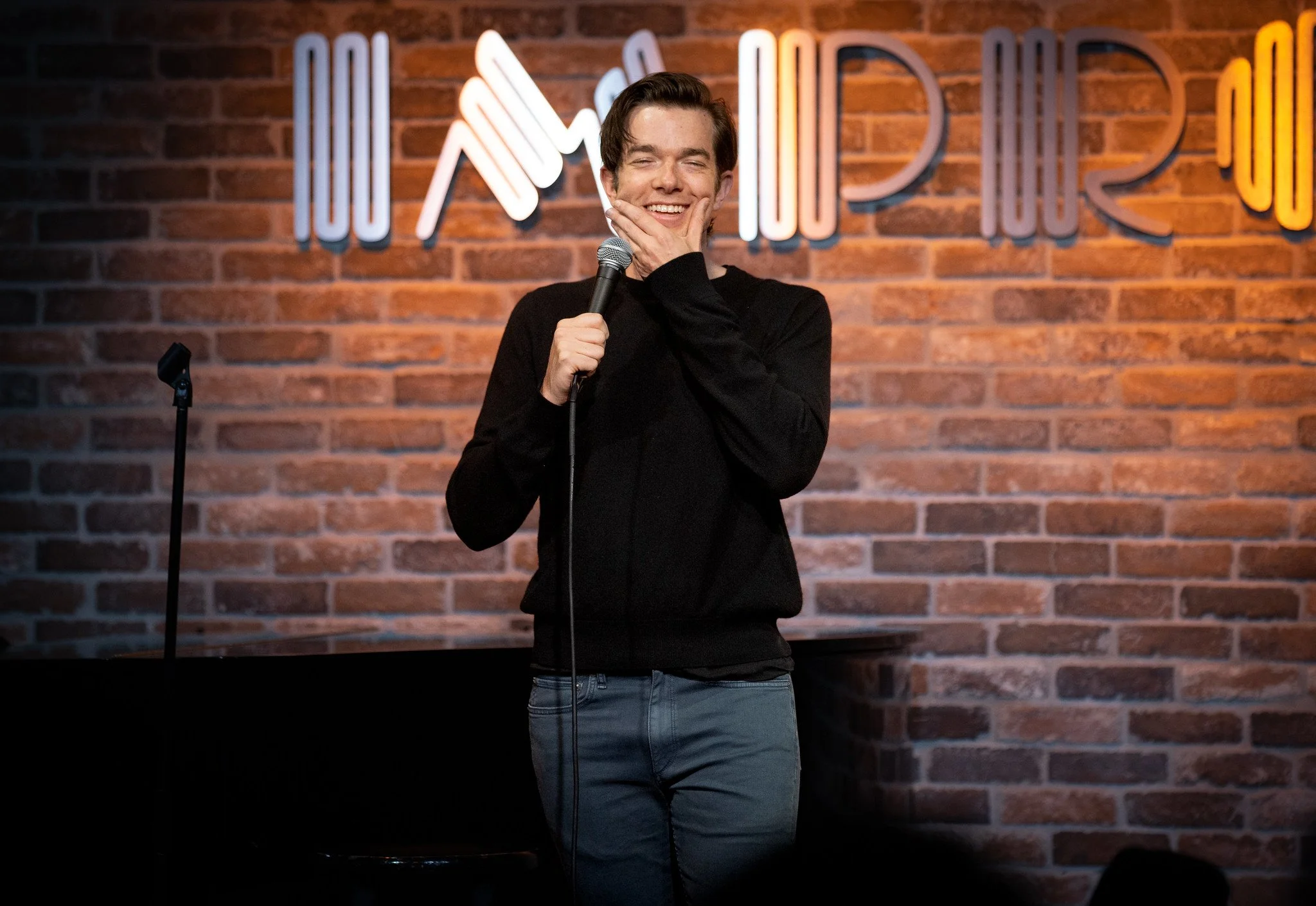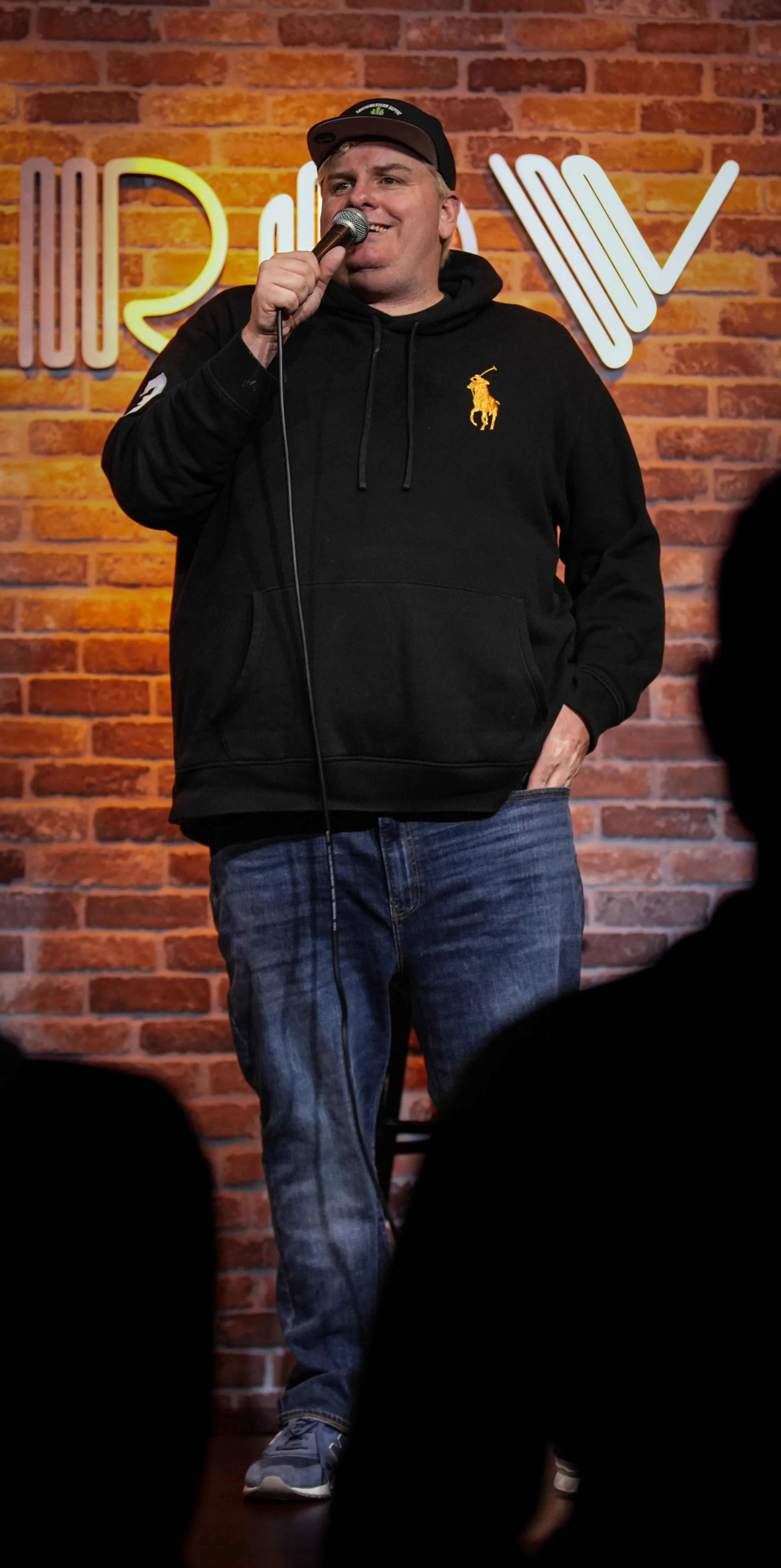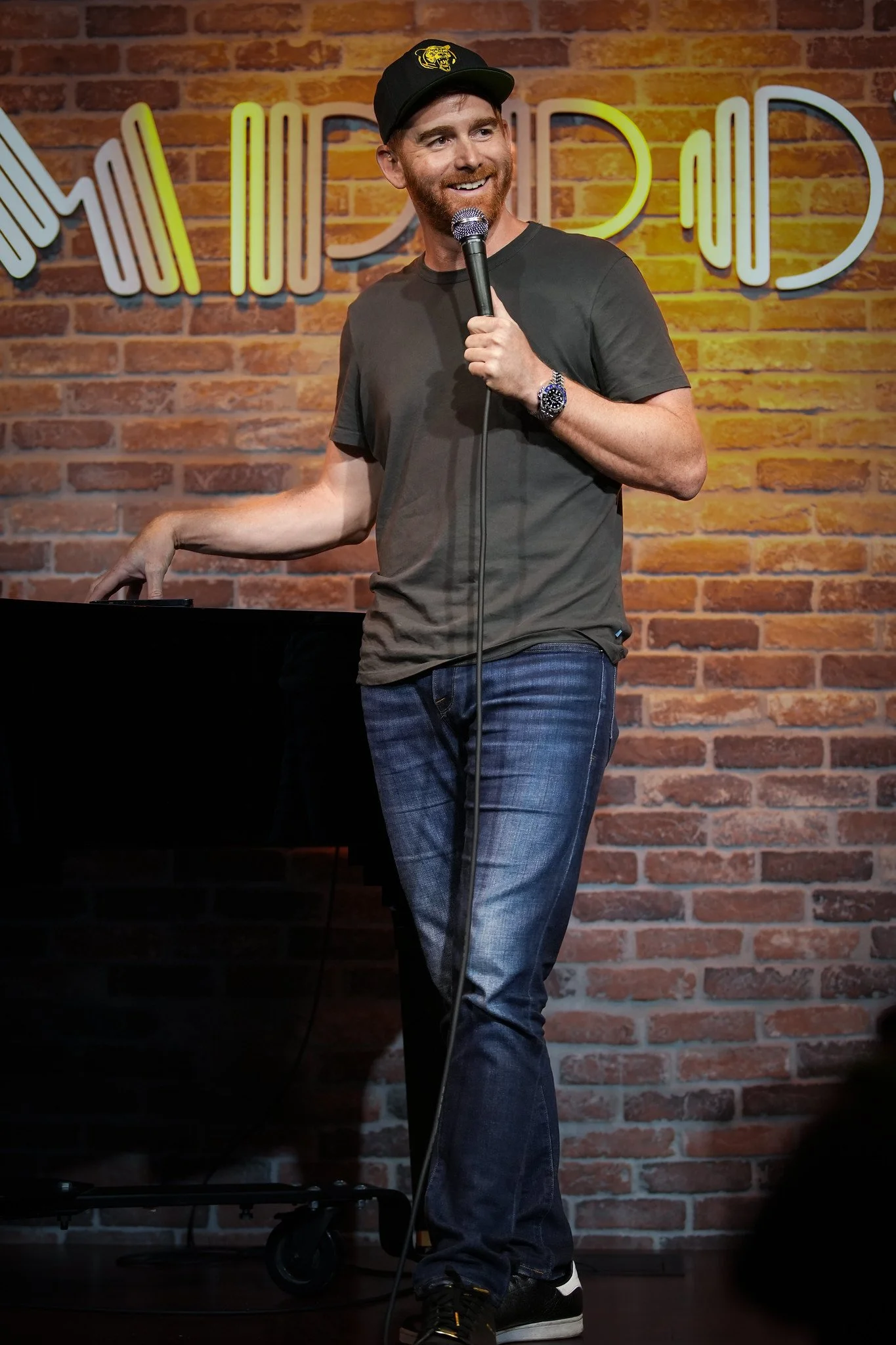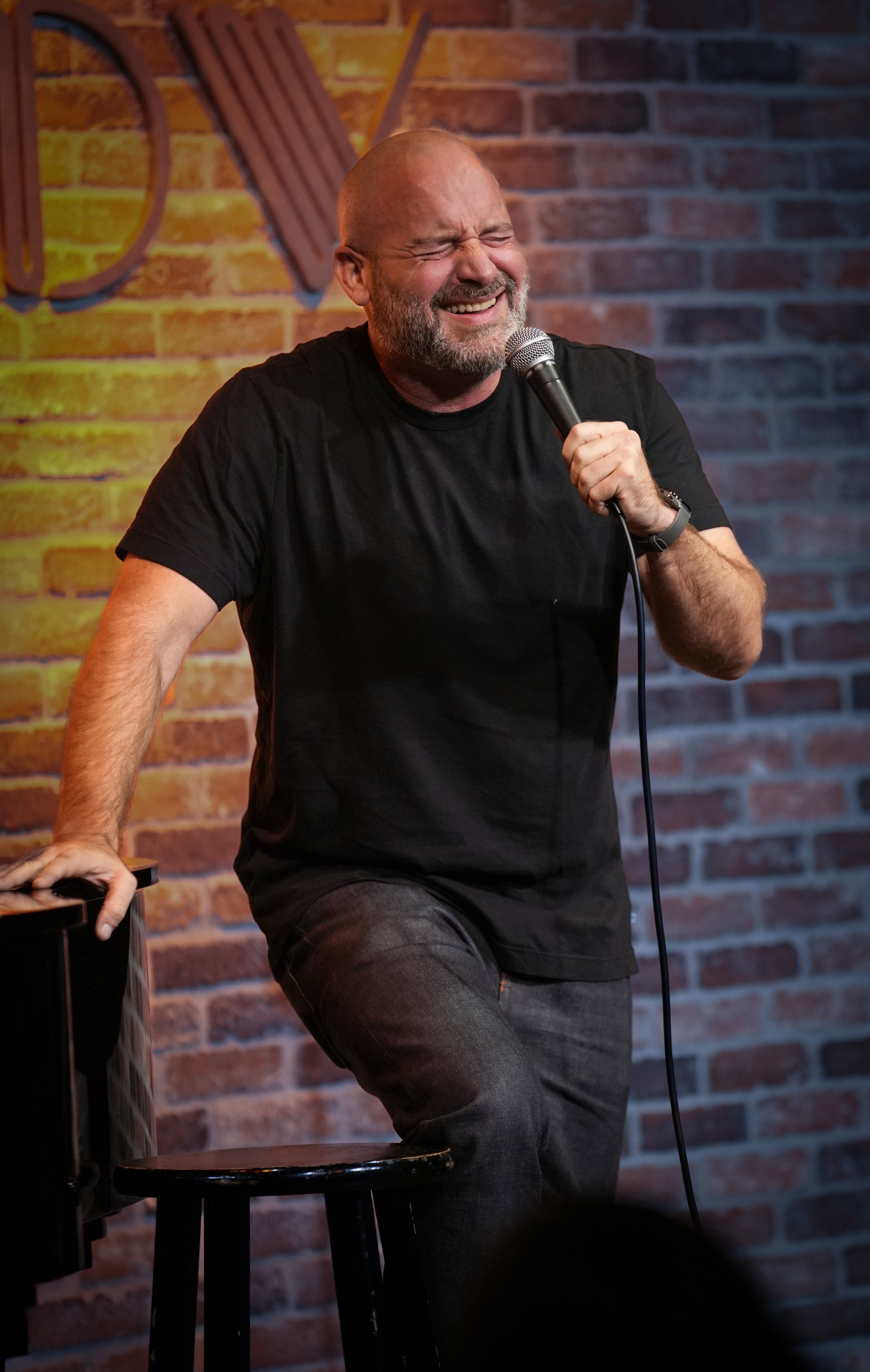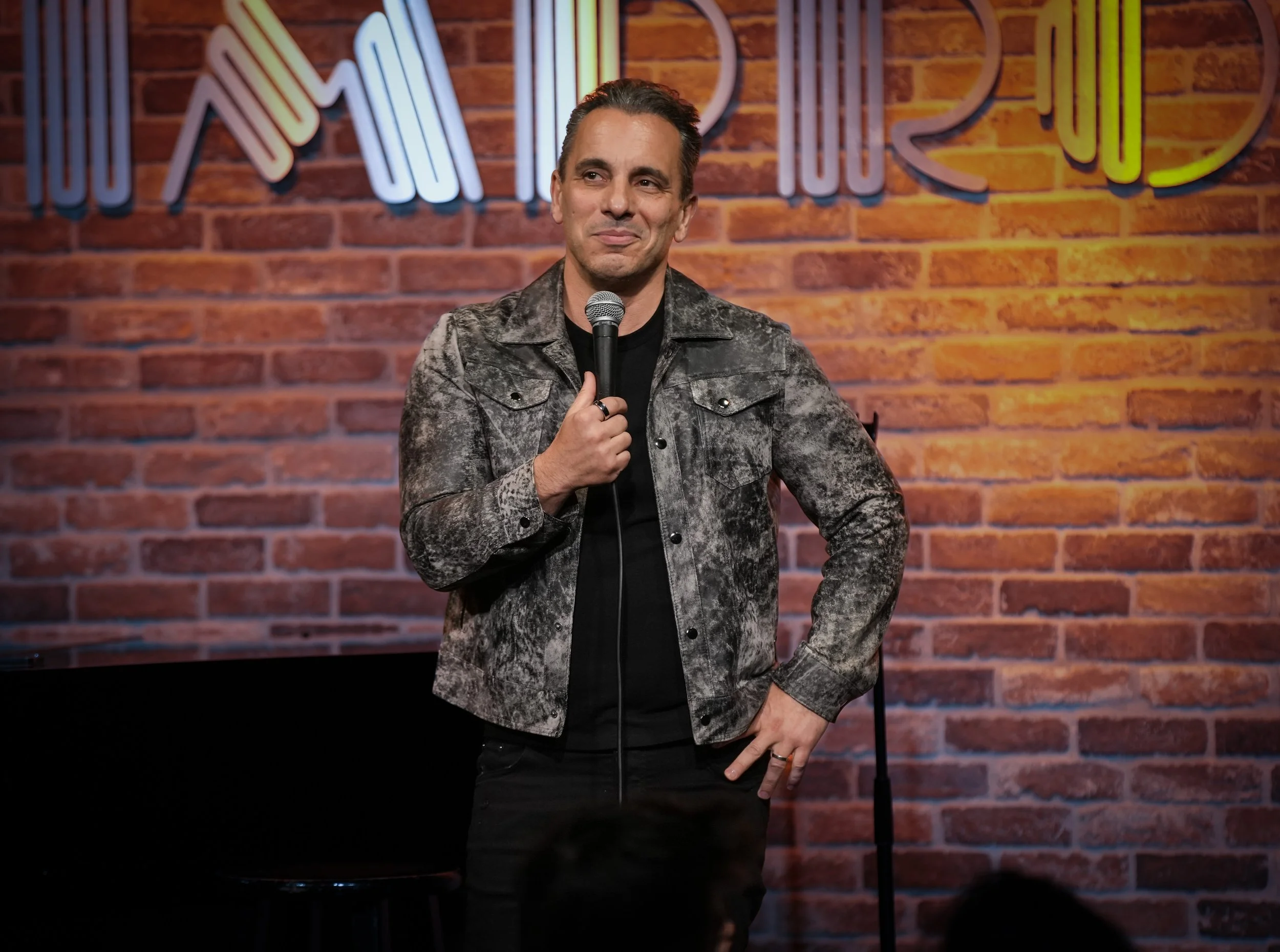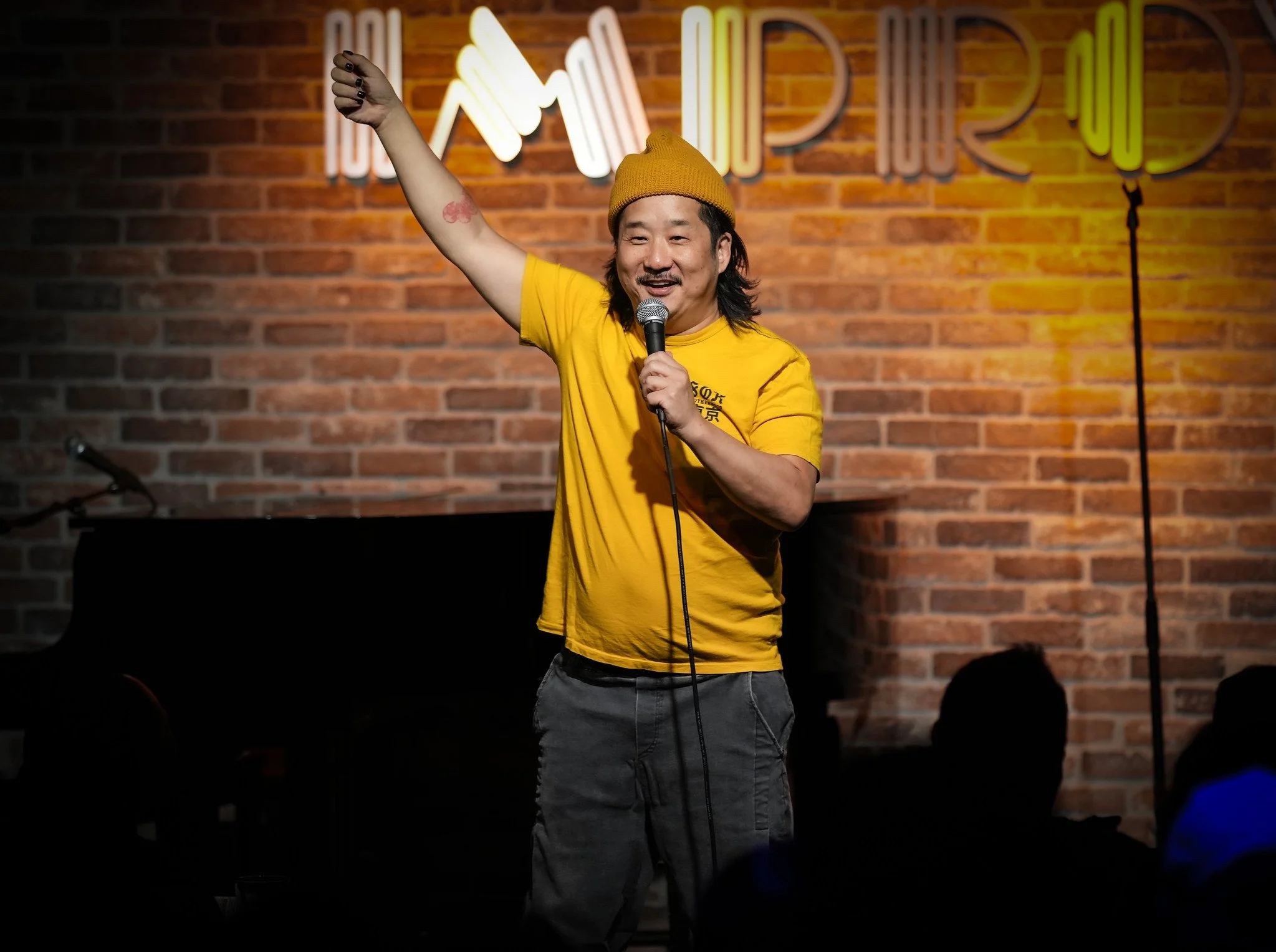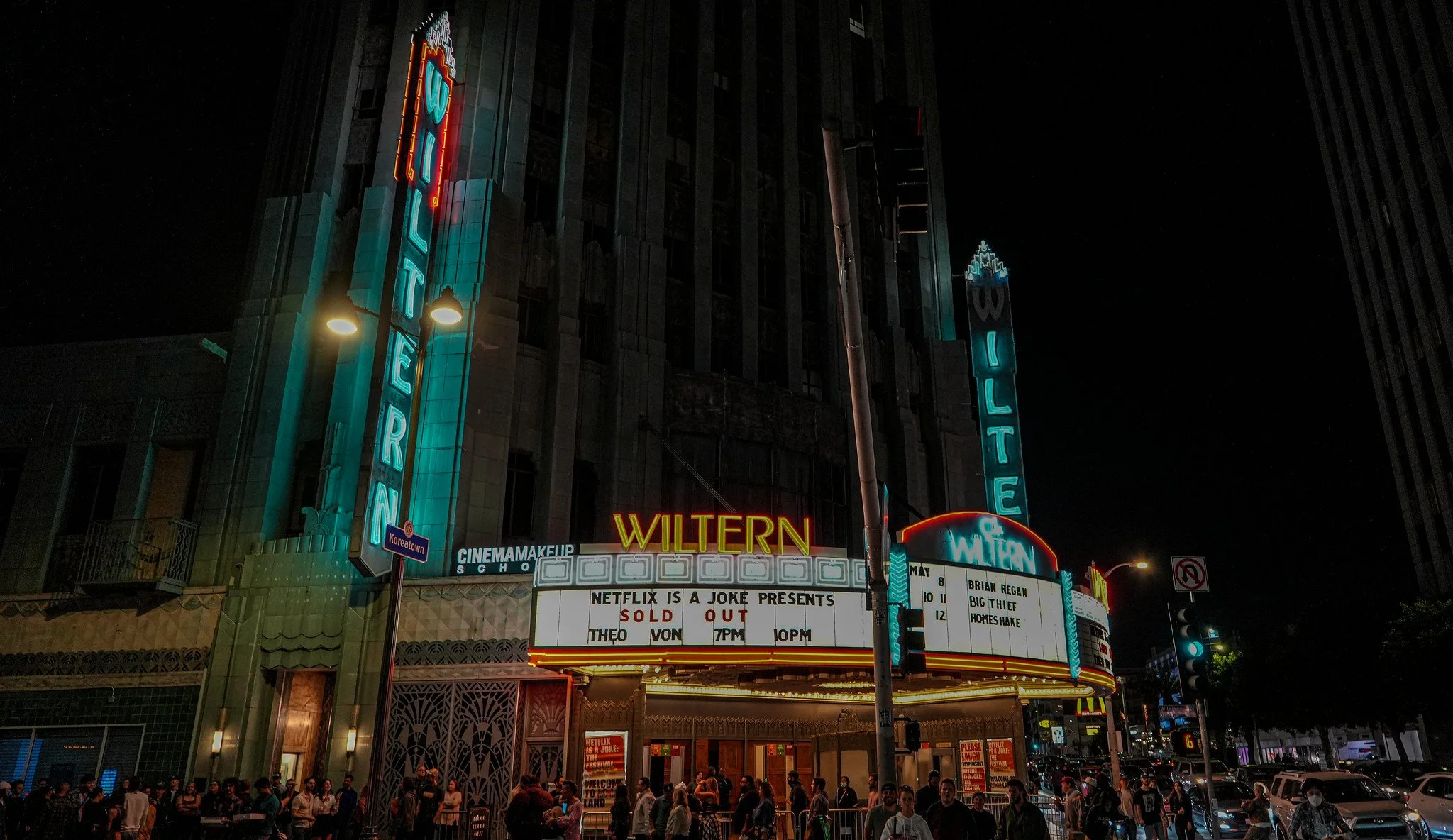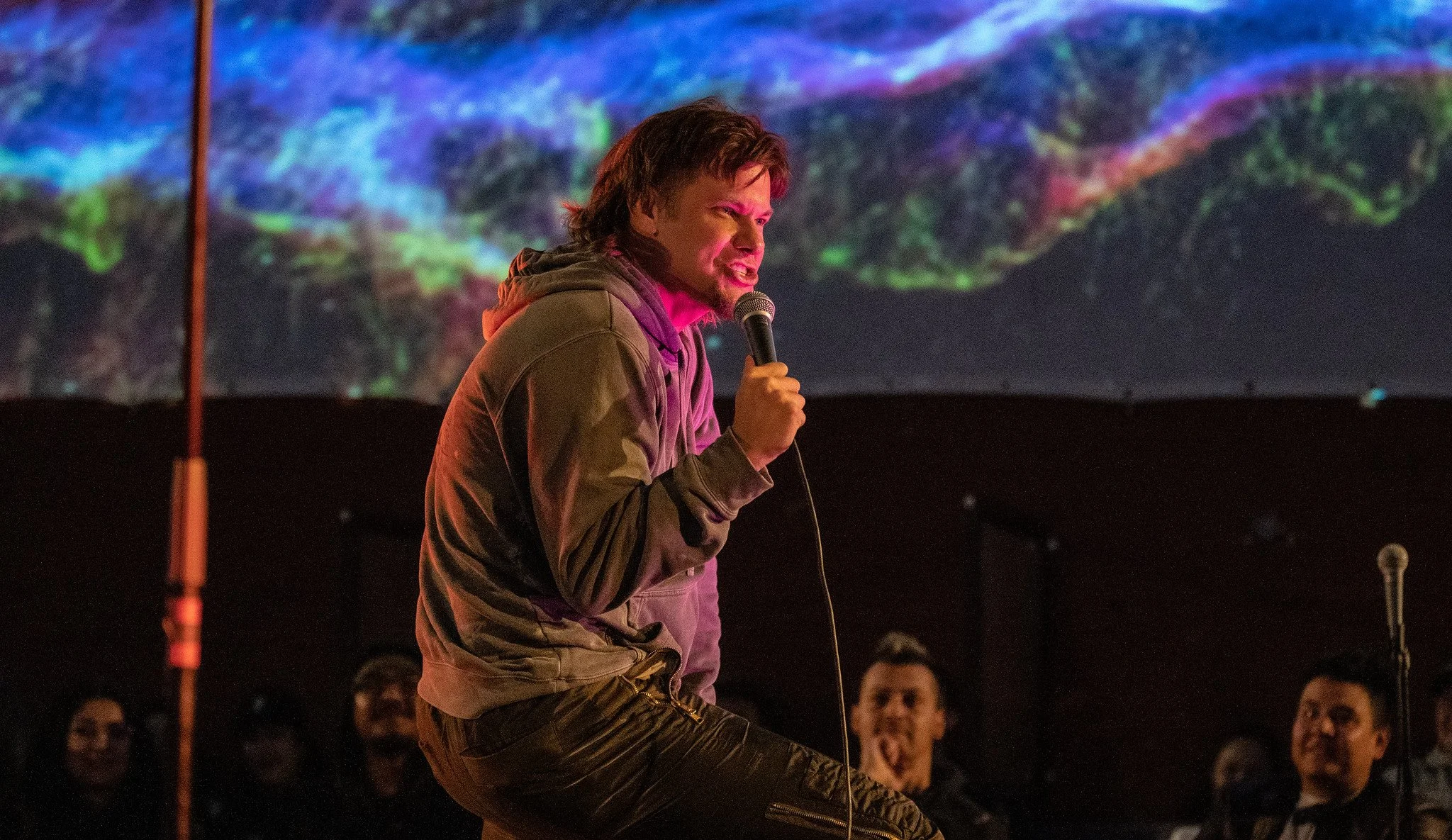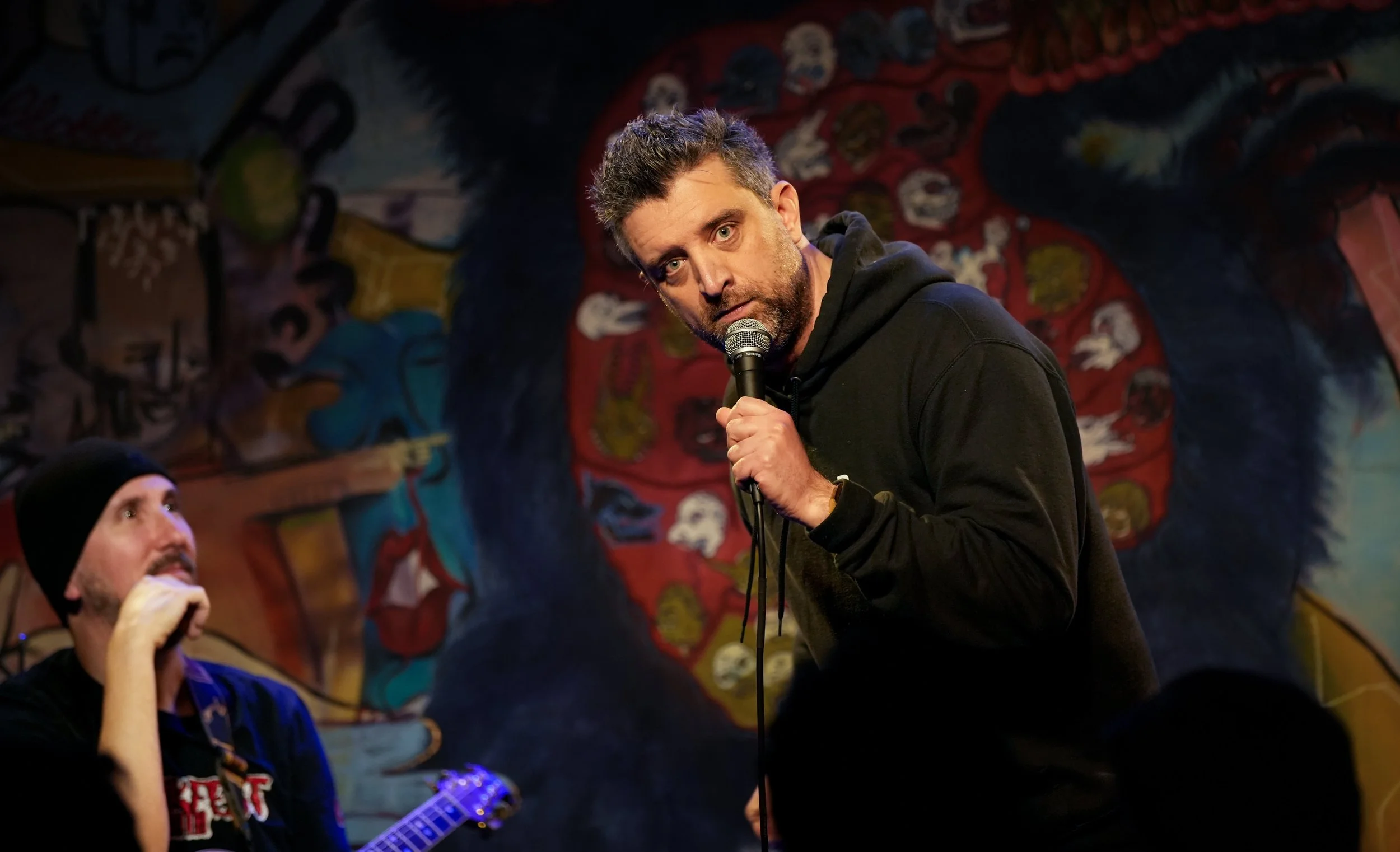Isaac Abrams
Our preconceptions of Hollywood, and the business of filmmaking, are often wildly different from reality. The blunt, hackneyed version of the story tells us that anyone aspiring for a career in the merciless world of showbiz either hits it big almost immediately, pays their dues for several decades before achieving moderate success, or simply hits the ‘eject’ button after one too many tough breaks.
Isaac Abrams’ particular route is, as these things often are, much more nuanced. Within a few days of moving from Greater Raleigh, North Carolina to the City of Angels, he was working on music video sets as a production assistant. “We showed up somewhere 30 minutes away from LA at 4 o’clock in the morning, we worked ‘till 10 o’clock that night, and we loved it,” he says. “We got hooked.”
Within a year, his real life group was hired as the backing band for Rihanna’s ‘Umbrella,’ leading to a string of similar gigs in other music videos. “I think if we came out here [to LA] to do music videos on purpose, we would've never gotten into music videos,” he laughs.
Over a career in the industry spanning upwards of 15 years, Isaac has maintained the admirable quality of simply moving forward, and trying things, unapologetically. After a stint where he spent 10+ hours a day woodworking and listening to podcasts like The Joe Rogan Experience, and Tom Segura’s Your Mom’s House, he set his sights on the world of comedy. And then he actually went for it.
Utilizing skills in videography, directing, set design, and editing, Isaac created his own show to shine a spotlight on up and coming comics, and ultimately have a good time and laugh a little.
With The Isaac Abrams Show (affectionately coined “sit down comedy”), he’s become incredibly consistent, cranking out episodes and reels, and recognizing trends before they become popular. He cares deeply about the intricacies of vertical video — fonts and colors in caption clips, hashtags and keywords — and he applies the same attention to detail in directing comedy specials, including two for rising talent Drew Lynch.
Of all the creators I’ve interviewed for this series, Isaac is the only one I’ve actually worked alongside personally. We met at the Lakeland, Florida date of Theo Von’s ‘Return of the Rat’ tour, on which Isaac was the head honcho for content production. I had no idea what to expect walking in, but some of his first words made me feel at ease. “I can already tell you know what you’re doin’ – I’ve got nothing to worry about.”
This was a rare humility in what can sometimes be the cutthroat world of photographers and videographers, most of whom are vying for the same coveted spot as the go-to shooter for the big-name talent. But it’s clear Isaac approaches these shoots without condescension or pretension. He simply gets things done, usually while making everyone laugh, along the way.
For the full interview, where we talk LA hustle, directing music videos, and the best way to launch a successful podcast, read on.
Last time we spoke, you described yourself as an ‘independent freelance film producer.’ If you would be so kind, give us a brief overview of who you are and what you do.
I don't remember describing myself as an independent freelance film producer, but that definitely doesn't mean I didn't say it. I have the worst memory in the world. [Laughs]
I produce podcasts, but when I hear the word producer, I instantly think of the film business. A producer would hire me as an assistant director. I rarely refer to myself as a producer unless it's in the podcast space. I have a lot of irons in the fire. My main gig is in the commercial film business as a director and assistant director, but over the the last 15 years I’ve done a lot. I'm also a photographer, a podcast producer, and a consultant. I own a podcasting company, I am a podcaster, and I’m soon to be voiceover artist.
For those of us who don’t know, could you break down the different LA film industry roles (AD, director, producer, PA, etc.), and maybe briefly explain to the average person what the hell each of those mean?
We'll start at the top, right? Director's at the top. A director on a commercial does vastly different things than a director on a movie or a television show. In my world, in commercials, the director would have been invited by the advertising agency to write a pitch deck on their already existing creativity. So the advertising agency says, “We're gonna sell Coca-Cola, we're gonna sell it this way. What's your take on it?” The director will then write a treatment (“This is how I feel, this is how I wanna shoot it.”), and the agency will either select that director based off of his interpretation of their creativity, or not. If the agency says, “We love the way that you read our creativity — we're gonna hire you to do this job,” then the director hires a producer to start staffing out the rest of the positions. That’s around the time, as an assistant director, that I’d get a call from the producer and we’d start to schedule out the shoot.
Then my job would be to schedule the shoot in the most efficient shooting order, taking into account talent availability. Say Tom Cruise has to leave by 3:00, so we have to get it all done by 3:00. Or there are children here and they're various ages and there are labor laws for ‘em, so the 4-year-old can stay for three hours and the 12-year-old can stay for eight hours. I take all those things into consideration, including the weather, and I make the schedule. Then on the shoot day I kind of command the shoot and run the crew so the director can focus on creativity and interacting with the talent and the agency. That's about as succinctly as I can wrap that up.
When you say ‘commercial shoots,’ does that literally mean TV advertisements, or does ‘commercial’ suggest big corporation kind of shoots?
That’s a great question. When I say a commercial shoot, I mean literally the kind of commercials you would see on television during a program or a sporting event. There are other uses of commercial production, like interstitials, which are basically in-house infomercials or content that’ll only be shown to the people that work for a company. Generally that tends to be a little bit longer form and shot with smaller crews. But for the most part, the best way to think about it is like … Super Bowl commercials. If it's gonna be under a minute and you're gonna see it during the Super Bowl, that's what we do.
Why did you move to LA in 2006? What sparked that change?
I got my start in music videos. I moved out here [to LA] in 2006, and I worked my first music video three days later as a production assistant. A production assistant does literally everything that no one else wants to do: sweep the floors, take the trash out, make it quiet when we’re rolling, get all the director's chairs out of the truck.
As for the backstory, I moved out to LA with my band in 2006. My singer had moved out nine months earlier in 2005, so he had already broken into the production world as an office PA — he was the production manager's runaround guy. An office PA is different than the set PA in that they have a little bit more responsibility, and there’s a lot more work. Essentially, he was already “on the inside.” The rest of us moved out here and he was like, “You guys wanna work on this music video?” So we show up somewhere 30 minutes away from LA at 4:00 in the morning, we worked ‘till 10:00 that night, and we loved it. We got hooked. It then took me nine months of having a part-time job to go full-time as a freelance production assistant. I still had to have a job when I moved here until the video for Rihanna's ‘Umbrella,’ which we were hired to be the backing band for. Funny enough, she only ended up wanting to use the drummer, so the rest of us just kind of sat around. That same company ended up producing a few more spots that month. and I was able to make enough to quit my job.
We said, “it's about what lottery we hit first. If we get jobs in the film business, we won the lottery. If we get a record deal, we won the lottery.”
I think the best thing that ever happened to us is not getting a record deal.
What was the job that you quit?
I call it a knob factory. They had kitchen knobs of all shapes and sizes, thousands and thousands of 'em in a tiny little warehouse. My job was to take one of each and screw them to display boards and ship them to all of the various retailers in the United States.
We got placed there. [My bandmate and I went to] a job placement spot and they were like, “Okay, you're going out to the knob factory tomorrow.” We started as pickers. We’d get orders in like, “I want four silver knobs,” and then we’d have to go find ‘em in this giant warehouse, put 'em in a box, and take 'em over to shipping. We did that for about two weeks, then they moved us over to boards. My guitar player Keith and I worked there together for eight or nine months.
The other thing we were doing when we first started out was building stadiums. That’s probably the worst work you can possibly get. $10 an hour. Anytime you go to a state fair where they’re having a concert, but there wasn't supposed to be a concert there, someone has to build that stage, right? They weren’t super big (maybe 40 by 60 ft.), but the gear was old and you got paid on what was called a “four hour mini.” So if you got it done in four hours, you still got paid for four hours. But they usually took six to eight hours, so no one was ever in a real big rush, ‘cause you are never gonna do what we called “Beat the Clock,” which is get it done at under four.
Tell me more about the ‘Umbrella’ music video shoot for Rihanna. You were hired as the backing band?
We got hired a lot as a backing band. From being production assistants on other shoots, we started making friends with producers and casting directors. It was just easier. Instead of having a casting session where they’d be like, “Oh, we gotta find a guitar player, a drummer, and a bass player,” these guys would just start sending artists a picture of all of us. We ended up doing 20 or 30 videos together as a backing band.
A lot of them were solo artists. Ross Copperman, Gavin DeGraw, they have their bands, but those guys aren't necessarily around. The artist might not necessarily want to pay to fly them to California for the shoot and put them up the whole time. So it just ends up being cheaper to hire local actors.
You and I connected over both having spent time in Emerald Isle, North Carolina. You mentioned that at the time, back in 2008, you were in a pop-punk band. As someone who’s played guitar in bands off and on for the majority of my life, that really piqued my interest. What’s the band story?
I started the band in 2001, just going through Craigslist. I found a drummer and a guitar player, and we got our practice space, and we rehearsed for a year and a half, and we auditioned 45 singers. We're talking North Carolina, 2001. We had some strange people show up. We had this one guy come with his girlfriend and he wouldn't speak to us, but he would whisper in his girlfriend's ear and then she would repeat what he’d said. There's an unlimited number of crazy stories like that when you audition people in a small town in North Carolina.
Finally this one guy comes in, plays a couple songs, I go out to go to the bathroom, and when I come back in, the rest of the band had already said, “This is our singer.” I was a little bitter about it at first, but we ended up becoming best friends and we're still friends with this day.
Anyway, our singer moved out to LA nine months before us, and he started working in music videos. Before he was in our band, he toured as a merch guy and drum tech for a band called American Hi-Fi. Those guys were friends with a music video director named Chris Applebaum. He’s famous for doing all the sexy Carl’s Jr. and Hardee’s commercials, as well as directing Rihanna's ‘Umbrella.’ Our singer got a referral from American Hi-Fi, who put him in touch Chris Applebaum, who was their music video director. Chris hired him for the next gig, he was able to pull it off and not fuck anything up, and then when we got out here he plugged us in. That’s how we got the gig.
I think if we came out here [to LA] to do music videos on purpose, we would've never gotten into music videos. It wouldn't have worked. We’d just meet these people and they’d end up putting us in ‘em. It seemed so easy back in the day.
What was the turning point into the world of directing?
So back then on MySpace it looked really cool to just pick your sh*t up and move to California. About five or six other bands from North Carolina followed us out here expecting the same instant “luck” that we had. (I called it luck back then, but I don't really feel that lucky anymore.) They expected us to just plug them in. Except, at the time we were working our asses off 14 hours a day as production assistants, and not making a lot of money. Back then you got $200, sometimes $150 to work that long. If you do the math, that’s not minimum wage. Eventually people just started slowly trickling out. Some guys made it three weeks, some guys made it six months. But eventually they either got married and moved back home, or they just couldn’t cut it.
You can be a medium dog in a tiny pond in North Carolina, be a weekend warrior and feel like a rockstar, and then go back to your regular job. But out in LA there wasn’t a lot of work for so many people at once. We broke up the band in 2010, and all stayed friends. To this day we're all still best friends. We always said, on the drive out here, “It's really not about the band, it's about what lottery we hit first. If we get jobs in the film business, we won the lottery. If we get a record deal, we won the lottery.” And I think the best thing that ever happened to us is not getting a record deal. If I'm 43-years-old still trying to tour one hit from 2009, splitting that five ways with four other dudes, that money doesn't go real far. Having that be your only skillset, that's not a situation I would want to be in right now.
But we had some great times before all that went down. It was all rock & roll for the first five years. After that first year in LA, I moved into a music video director's house, and he was never home. If we weren't working, we were hanging out in the pool, inviting friends over, just having a good time. We’d have a shoot from 5 o’clock in the morning to 10 o'clock at night one day, but the next day, we wouldn't have a shoot. I was probably working ten days a month. So we had a ton of free time to rehearse, and not a lot of money. We only went to one bar, by our house, that had $2 Tuesdays. And that’s cocktails, not beers. Every Tuesday we’d go to the Tonga Hut in North Hollywood and slap $10 bills down on the bar. We caused a lot of trouble in that place.
People move out here and they’re like, “I wanna be a director.”
Well, everybody wants to be a director. That's the best paying job. But nobody wants to start at the bottom.
It seems like you’ve stuck around for a number of eras in music and pop culture. Is there any particular artist you’re a fan of that has held steady throughout the years?
Back when I was in North Carolina, I was a massive fan of Butch Walker and his former band, Marvelous 3. Our singer was on the road with him for a very long time as his merch guy and drum tech. He met Butch through American Hi-Fi, they toured together, and then Butch became a friend of his. By proxy, I'd get to hang out every once in a while. Which takes me to the biggest lesson in any entertainment genre: No matter what room you're in, if you wanna make it, you gotta learn how to hang. If not, you're not gonna get invited back. Basically, shut up unless you have something really funny or poignant to say until you're the guy in the room that no matter what you say, everybody wants to hear. One day, when you switch over to be the talent, and it's your turn to be interviewed like this, then you can run your mouth for two hours.
What do people who are outside of the LA / Hollywood scene misunderstand about the film industry? Are there any major misconceptions?
People move out here and they’re like, “I wanna be a director.” Well, everybody wants to be a director. That's the best paying job. But nobody wants to start at the bottom. People also don't know as much about filmmaking as they think, but they went to film school and they're like, “I know the process of filmmaking.” But do you really know what it takes to get all this sh*t here? Do you know who has to pick it up? Do you know why it's here? Do you know what everybody on set does? The general answer is ‘no,’ and that's why I have a job. That being said, it's insane to the crew how little directors know about what the crew actually does.
I think that's the biggest misconception is that directing is such an intricate thing. It can be as little or as much as you want to make out of it. There are directors who do absolutely nothing. They sit in a chair and the whole crew makes them look awesome. And there some directors who are very hands on, and talk to every single person in every single department.
The reason I stayed in commercials instead of moving into television is because I like working with different people every single day. If I don’t get along with somebody, I have a fresh face the next day, or two days from now. But on a movie, if you don't get along with somebody, you're working with them for nine months with one day off a week.
Last time we spoke you mentioned you worked on a Bring Me the Horizon music video almost a decade ago. They were, and still are, one of my favorite bands. Is there a music video that you've worked on that you're most proud of?
The only one that I'm really proud of is the Fall Out Boy video that I directed. It’s not even a real music video — it's a promo for [the movie] Big Hero 6.
The thing that sticks out about the Bring Me the Horizon video is that we’d shot so many other videos in that same warehouse, so my memory of working on that video is blended with one working on a Britney Spears music video called ‘Till the World Ends.’ You'd never be able to tell either one was shot in a basement. We’d decorate, build out, and paint and so it’d just look like whatever the scene needed to be. This particular place in LA used to be called Crazy Gideon’s. The second floor was a warehouse for this guy who’d run these weird late night advertisements — “Come on down to Crazy Gideon’s and get a crazy good deal on a TV!” Except downstairs in the warehouse he had dungeon and prison sets, and then upstairs there was a boxing gym, and then on the third floor there were bedroom sets and kitchens. Only the middle was for his crazy TV deals. The other three floors he’d just rent out to film production for music videos. So it's been in just about every show and music video you can think of.
What got you into the world of comedy?
I've always been fascinated by comedy. After my band days, I was just wandering and working, but I didn't really have a thing. I wanted a reason to travel. My guitar player became a luthier, so I got fascinated with woodworking in 2015 - 2016, and I became a wood artist. I’d go to my buddy's shop and he’d be cutting wood, sanding it down to a polished finish, showing me how to make guitars and fretboards. It’s really precise work. I ended up getting a shop across the hall from him. I’d buy construction grade lumber from Home Depot, cut it up, sand it, and glue it together to make wood art. 10 hours a day I was in my wood shop. But the connection here is the whole time, I would be listening to podcasts, mostly comedians like Mark Maron, Joe Rogan, Tom Segura and Christina P. All podcasts, no music. Eventually I was like, “I wanna get on the road. These comics seem like they're doing it right!”
In 2018 I re-partnered up with a buddy of mine and we started Brickyard Media Group. I built out one small podcast studio and started podcasting. I was trying to reverse engineer what all the big comics have. So I started with a podcast and then started comedy, which is completely ass backwards. Realistically, you need to get good at comedy first, build a fan base, and then start the podcast. Otherwise no one's gonna listen to it. But I did 61 episodes of that show before the pandemic hit. Then I started a daily pop culture podcast with my other business partner, Misty Roberts, who’s a tour manager. We did 428 straight episodes before she had to take a little break to go out with Enrique Iglesias last year. Once she left, I decided to bring my own show back, and I really started thinking about designing the set for season 2 of The Isaac Abrams Show.
You and I worked together at Theo Von’s Lakeland, Florida tour stop in late June this past year. How did you start shooting for comedians on the road?
We had a podcast client in our studio that Ben Avery (former producer of The Tim Dillon Show) was producing for a very short time. This is when Tim was getting like 10k views on YouTube a week, around February 2020, before he was on [The Joe Rogan Experience] four times in one year and became the absolute monolith that he is now. Basically, Ben and I just stayed friends. We’d call each other and swap gear notes, help each other, and just nerd out. When it came time for Tim to take a videographer on the road, Ben called me and said, “Hey, do you know a college kid that wants to go on the road?” I said, “I'll do it.” Cause, why not? How often do you get to jump on the bus with Tim Dillon? We headed out on the road, did 16, maybe 20 dates. A little later on, Tim realized he's just not the guy that posts like, say, Andrew Schulz. He doesn't doesn’t need to be putting video clips up every day. So we parted as friends. By this time, I had some experience under my belt. So when Theo Von called Ben and asked, “Hey man, who do you know who’s a good shooter and wants to go on the road?”, Ben said “Well, we really liked havin’ Isaac on the road.” So Theo gave me a shot it's been balls to the wall ever since.
What's a piece of gear that you can't live without?
Depends on the gig. A lot of people want the biggest, baddest thing, but I'll tell you, a large percentage of the footage that I use in my edits, it's from a DJI Pocket 2. It's a gimbal on a stick that shoots 4k, and it fits in my pocket. You don’t need a big rig to show everybody how much gear you have. You want something discreet. That thing is stable, in focus, and the sound is great.
Doing photography, videography, editing, and social media for comedians on the road vs. assistant directing in Hollywood. What are the pros and cons of those two lifestyles?
So when you’re freelance, if you work 12 to 14 days a month, you're considered to very, very busy. But that also gives you 16 to 18 days off per month. You just naturally start finding other stuff to do. The main difference is this: When you've got an entire film crew and all day to shoot a 30 second spot, you can really make some beautiful art. But when you're out on the road and it's just you and a camera, and you have to make it look good right this second, you don't know what's about to happen. There's a quality difference. And that's the difference between social media and high-end, well-produced content. Social media content wants to look like it was shot on your phone. It wants to shake a little bit, it wants to have some grain on it. It wants to be not lit well. On the other hand, in the commercial world, there's no room for error. It has to be perfect and polished.
I think they're just two completely different worlds, and I feel blessed to be in both. I talk to a lot of shooters on the road, and they're like, “Wow, you get to work in Hollywood!” And I’m like, “Wow, you get to live here and buy a house and have a car!” The grass is always greener. If you’re the biggest videographer in a city like Dallas, you're gonna make a real good living. You might also be able to parlay that into having a content-based advertising agency. But you come out here to LA, and get yourself a job in the film business, unless you and your wife are both working, you're not buying a house out here. [Laughs]
Is LA worth it?
You catch me on the right day, I'll say ‘Yes.’ I have a love/hate relationship with this place. It's where I need to be right now for my dreams and goals and career. But do I have thoughts about moving to Nashville with the rest of my buddies? Yes. (That's the end of the band story, by the way — everybody moved off to Nashville except for my guitar player.) But I'm not done here yet. I got a late jump on LA. I moved here at 26, and turned 27 two months later. My advice [to anyone considering moving to LA] is this: If you can keep your head on straight, skip college. After four years of being a production assistant, you'll be in the department that you want to be in.
It took me 15 years to figure out that I wanted to live at the beach. In the time that we’ve been talking, I walked down, got a coffee, and stood in front of the Pacific Ocean for most of our conversation.
You’ve dropped the word ‘content’ a couple times. What does that word mean to you?
In the comedy world, we've embraced it. Everyone kind of makes fun of it. It is dumb, but there really is no other word for it. It might be the worst title you could ever call anybody. If you call somebody a content creator, you’d better be ready to put a fist up. Nobody wants to be a content creator. Everybody wants to be an artist. Personally, I don't really care. We’re making video items and still items for people's social media for a check. Same difference.
Tell me a little more about your current endeavor: The Isaac Abrams Show.
In my quest to become a comedian, I wanted to interview other comics and figure out how they do it. Season one is basically all open mic comics, because those are the people I was exposed to. For season two, I worked with a talent producer who was able to get me headliners and features. And season three, look forward to theater headliners and arena headliners. We’ve got some big hitters coming up. If you like inside comedy, and you like LA comics, check it out.
Last time we spoke, we both nerded out over a pretty specific combination of content management, digital strategy, and YouTube wizardry. You called it reverse engineering. What's one thing that you see podcasters, comedians, digital entrepreneurs doing really well these days?
One thing that I see people doing really well is using media across multiple platforms. Spreading out your content over as many social media platforms as you can — that’s a key for being a successful digital content creator in any genre. It might not take off on YouTube. But that’s not the same as Facebook. And it's not the same as [Instagram] reels, and that’s not the same as TikTok. Things perform differently. The people that blow my mind are the ones who can just re-edit for TikTok, in a really subtle way. You can’t tell the difference, but there is a difference. Anyone who can monetize across multiple platforms on the same piece of content, those people are really crushing it.
What do you enjoy the most about your current jobs and/or gigs?
Freedom.
It's been nice over the last 15 years to spread it out. If not all my bills are paid from one check, I can lean on another area financially. It keeps every day interesting. If I want, I have the freedom to really express myself through photography tonight. Maybe I’m going to a comedy club, or I want to make a piece of funny content for my channel. I have a Chevy commercial coming up next week. It’s nice to spread it out and not be in the same place every day or do the same thing twice.
